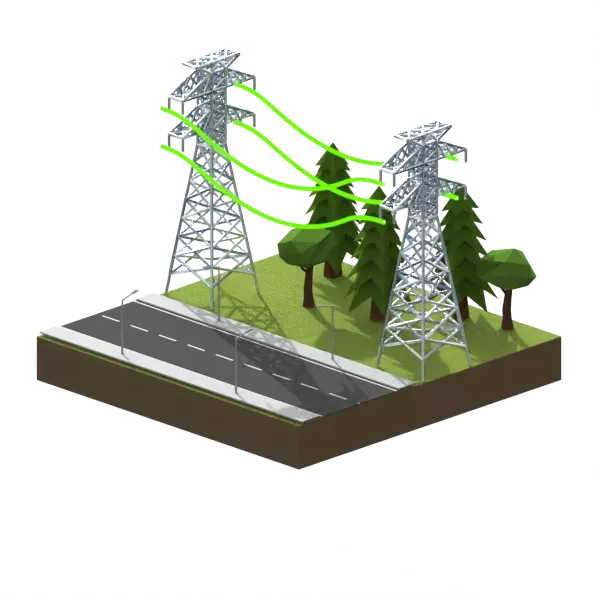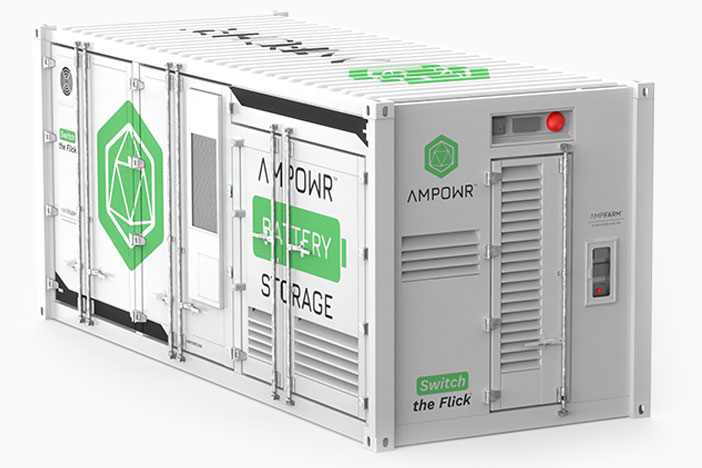ENERGY STORAGE SYSTEMS FOR COMMERCIAL
Unlocking the Potential: Energy Storage Systems for Commercial Applications
Relevance of including a energy storage system
Including an Energy Storage System in your business for commercial applications is highly relevant today. It offers cost savings by optimizing energy usage, enhances resilience during power outages, promotes sustainability by utilizing clean energy sources, provides grid independence, and enables participation in demand response programs. It’s a strategic investment that brings multiple benefits to your operations and demonstrates your commitment to efficiency, reliability, and environmental responsibility.
Are you ready to revolutionize your energy management, cut costs, and enhance your operations? In this article, we delve into the relevance and benefits of integrating an energy storage system into your business.

Types of energy storage systems for commercial
Battery Energy Storage Systems (BESS) store electrical energy in rechargeable batteries, allowing for charging during periods of low demand and discharge when demand is high. Pumped Hydro Storage systems leverage the potential energy of water, pumping it to an elevated reservoir during low-demand periods and releasing it through turbines to generate electricity during high-demand periods. Thermal Energy Storage (TES) systems store energy in the form of heat or cold, enabling its later use for space heating, cooling, industrial processes, or electricity generation. Flywheel Energy Storage Systems (FESS) store kinetic energy in a rotating mass (flywheel) and convert it back into electricity as needed.

Fix energy costs and avoid increases

Modular configuration and capacity options

Energy management & monitoring system

Energy continuity and security

Connect to grid, solar, wind and facility

Safest battery tech and high quality
Energy Source of Energy Storage Systems for Commercial
Energy storage systems for commercial applications can utilize various energy sources for charging and storing energy. Here are some common energy sources used in commercial energy storage systems:
Renewable Energy Sources
Commercial energy storage systems often integrate with renewable energy sources such as solar, wind, and hydroelectric power. These sources generate clean and sustainable electricity, which can be stored in the energy storage system for later use. By coupling energy storage with renewables, businesses can enhance their environmental sustainability and reduce reliance on traditional fossil fuel-based energy generation.
Grid Connection
Commercial energy storage systems can also be charged using electricity from the grid. During off-peak hours when electricity demand is low, businesses can draw electricity from the grid to charge their energy storage system. This stored energy can then be utilized during peak demand periods when electricity prices are higher. This approach helps businesses reduce their overall electricity expenses by avoiding peak demand charges and optimizing their energy usage.
On-Site Generation
Some commercial establishments have on-site generation capabilities, such as diesel generators or combined heat and power (CHP) systems. Energy storage systems can be charged using the electricity generated by these on-site sources during periods of low demand. This stored energy can then be deployed during high-demand periods, reducing the reliance on grid electricity and providing cost savings.




Application of Energy Storage Systems for Commercial
Business case of Energy Storage Systems for Commercial
Sweet Delights Bakery is a small-scale bakery located in a busy urban area. With high electricity demand during peak hours, the bakery faces significant demand charges and increased energy costs. Seeking to enhance energy efficiency and reduce expenses, Sweet Delights Bakery decides to install an energy storage system.
Implementation
Load Shifting: The energy storage system enables Sweet Delights Bakery to shift a portion of their energy consumption from peak demand periods to off-peak hours. During times of low demand, the system charges by drawing electricity from the grid or utilizing on-site renewable sources, such as solar panels.
Demand Charge Management: By deploying stored energy during peak demand periods, Sweet Delights Bakery effectively manages their electricity demand, minimizing peak power draw from the grid. This strategy helps mitigate demand charges imposed by the utility company.
Backup Power: The energy storage system serves as a reliable backup power source for Sweet Delights Bakery during unforeseen power outages. It ensures uninterrupted operation of essential equipment, including ovens and refrigeration units, preventing product spoilage and minimizing business downtime.
Results
Cost Savings: Through optimized energy usage and reduced peak demand charges, Sweet Delights Bakery experiences significant cost savings on their monthly electricity bills. The energy storage system allows them to take advantage of off-peak electricity rates, resulting in overall lower energy expenses.
Enhanced Resilience: With the backup power capability of the energy storage system, Sweet Delights Bakery maintains business continuity even during grid outages. This ensures consistent productivity, protects their reputation, and minimizes potential revenue losses.
Sustainability: By utilizing the energy storage system in conjunction with renewable energy sources, such as solar panels, Sweet Delights Bakery decreases reliance on fossil fuel-based electricity. This aligns with their commitment to environmental sustainability, enhancing their brand as an eco-conscious bakery.
Overall, the installation of an energy storage system empowers Sweet Delights Bakery to optimize energy management, reduce costs, and ensure uninterrupted operations. This strategic decision positively impacts their profitability and sustainability as a small commercial bakery.
Cost of Energy Storage Systems for Commercial
Unlock the cost-saving potential of energy storage systems tailored specifically for commercial applications. When it comes to energy storage for your business, factors such as system capacity, technology, installation requirements, and local market conditions play a crucial role in determining costs. While the initial investment may require careful consideration, the long-term benefits are well worth it. Imagine significantly reducing your electricity bills through efficient energy management, effectively managing demand charges, and even generating revenue by participating in grid services programs. With energy storage systems, your commercial venture can experience substantial cost savings that contribute to your bottom line while ensuring a sustainable and resilient energy future. Don’t miss out on this opportunity to revolutionize your business’s energy management and financial success.
Our Smart Battery Energy Storage Systems are leading the energy transition and powering a wide range of industries and applications.











